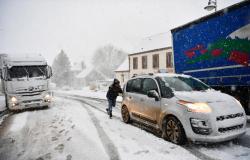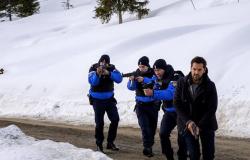Road safety is serious! And in France, the idea of using helicopters to track down speeders is starting to gain ground. Even if we don’t yet see many in our sky, our European neighbors didn’t wait. In Spain for example, and more precisely in Catalonia, these big birds are already well practiced at catching drivers.
Spain shows the way with its helicopters
In Catalonia, helicopters are not idle when it comes to controlling speed on the roads. THE Catalan Traffic Servicewho manages all that there, got around 3.500 infractions thanks to these flying patrols in just six months. And guess what? Of this total, 1.000 infractions concerned speeding! So it works pretty well as a method.
An example that created a buzz: a tourist caught in the act 199 km/h on a road limited to 120 km/h. Result ? The cops quickly stopped him and he now has to pay a nice little fine.
What this changes for drivers in Europe
On December 5, the Council of Transport Ministers of the European Union shook things up a bit with three agreements between member countries to harmonize road penalties. Now, if you get caught abroad (by a radar or something else), we can even take points off your license right at home!
Before that, only fines could catch you if you committed an offense outside your country. Now they have ten days to forward all your nonsense to the country where your license is registered. This should calm down those who thought they could drive as they pleased as soon as they crossed a border!
A united Europe against road offenses?
The idea behind all this? That everywhere in Europe we are in the same boat when it comes to traffic violations. This way, if you get flashed by a helicopter in Catalonia or elsewhere, you will receive your ticket at home with no possible escape.
This kind of harmonization could encourage France to adopt this aerial surveillance more widely. Although rare among us despite some tests planned in 2024this approach could really boost our safety on the roads.
The future of controls in France
For the moment in our country, aerial surveillance remains quite marginal but it could become essential to strengthen our arsenal against those who push too hard. By taking an example from the Catalan model which works well, we could better control our roads while playing collectively with our European neighbors.
The main challenge therefore remains to ensure optimal safety on our roads while ensuring that each offense is punished fairly and uniformly throughout Europe. If you are interested in road safety issues (and that’s important!), keep an eye on these developments which could change the way we manage speeding and other serious driving offences.
A reaction? Leave a comment
Did you like this article? Subscribe to our free Newsletter for engaging articles, exclusive content and the latest news.






